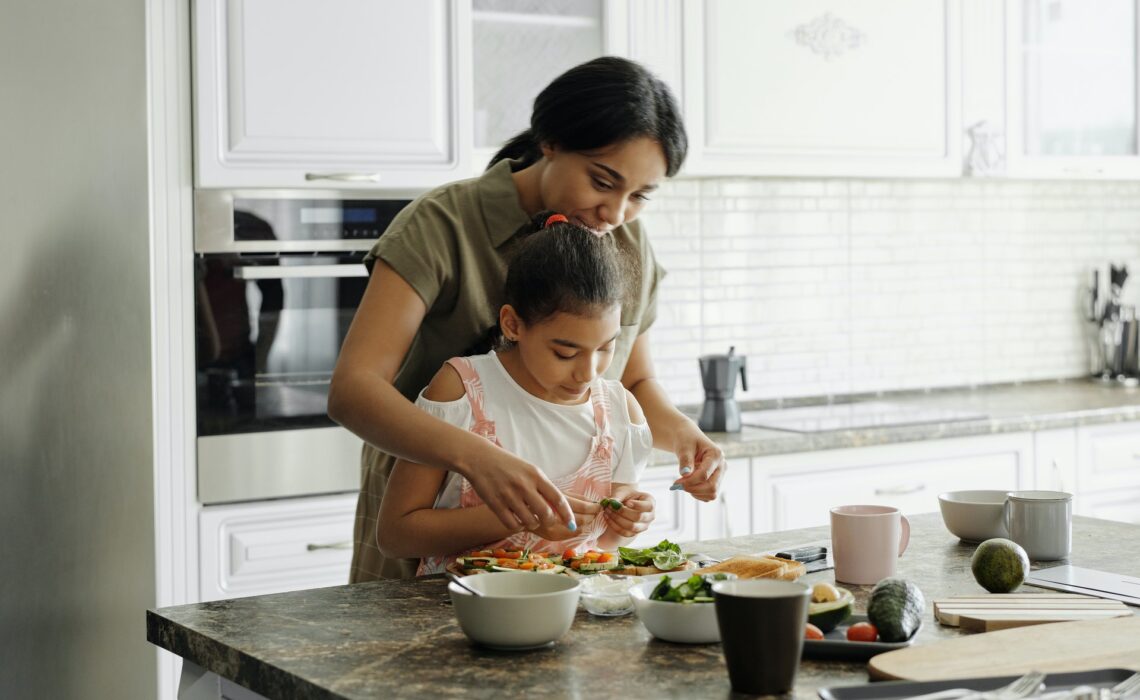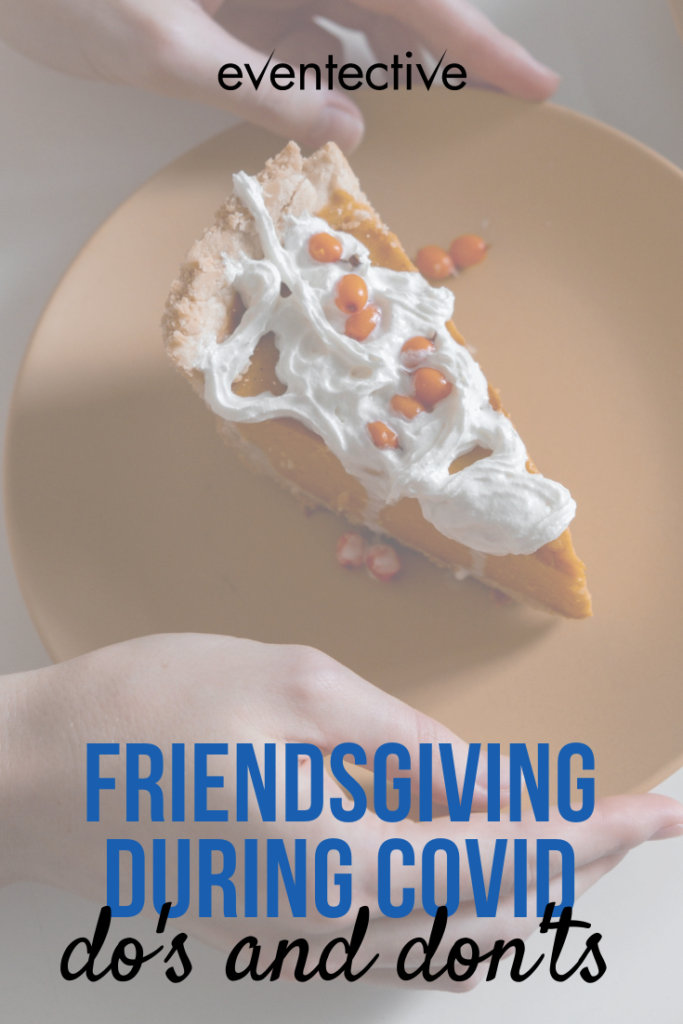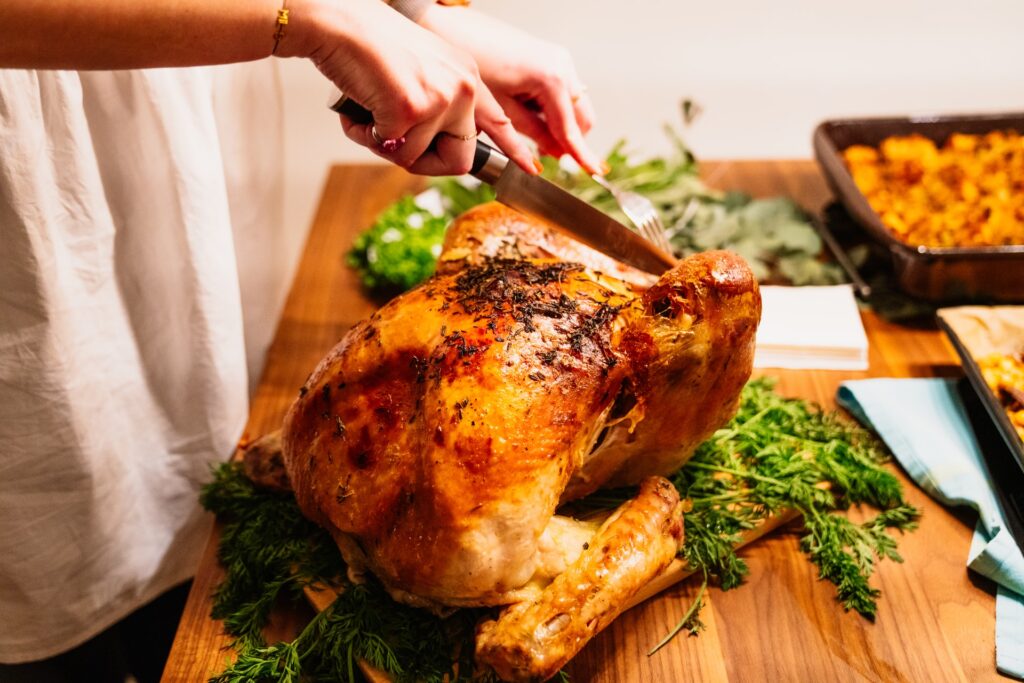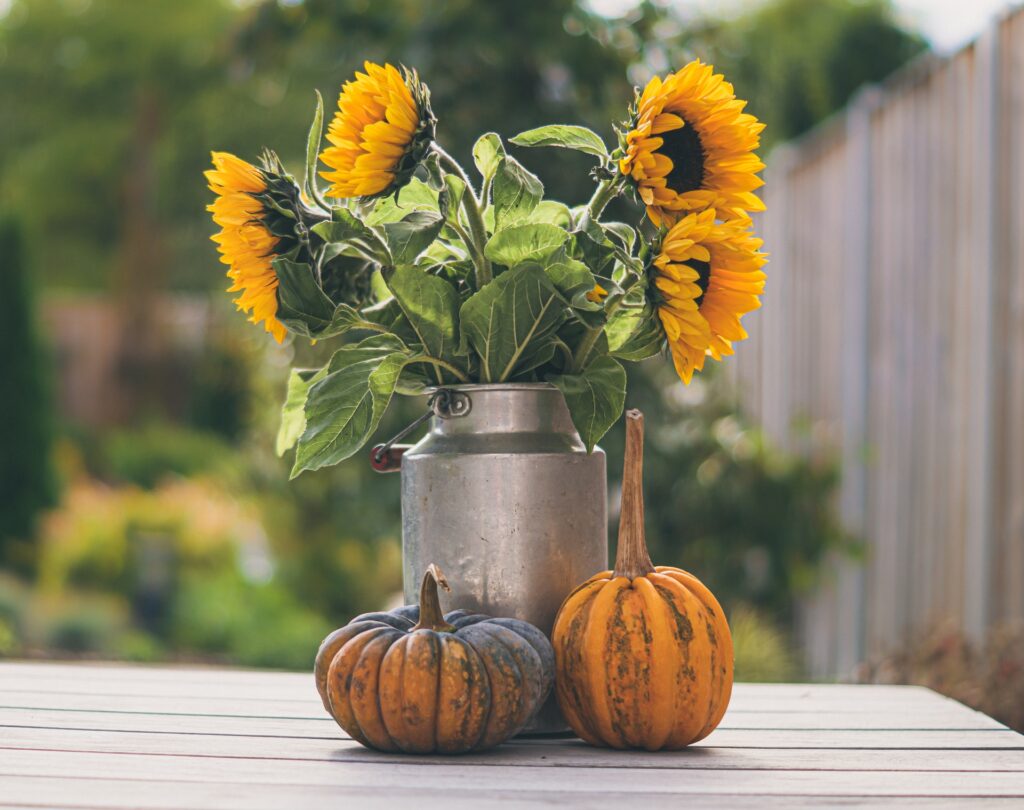
The holiday season is a time for friends and family to gather, celebrate, and exchange laughter. And, of course, to eat! But many Americans are questioning how to honor tradition while respecting social distancing guidelines and keeping everyone safe. As always, you can opt for an entirely digital breaking of bread using one of the many available video chat platforms. That way, everyone stays safe at Friendsgiving during COVID! But maybe a digital Friendsgiving isn’t an option for you, or maybe you really want to see your friends for the first time since March! Either way, there are a few tips that you can follow to reduce the risk of getting sick.
Friendsgiving is a term coined by combining the words friends and Thanksgiving. It represents an alternative to a family-only Thanksgiving celebration, and often takes place before or after the holiday—not usually on the official day. Although the term became more popular in 2011, its origin can be traced to social media posts by Usenet in 2007. Friendsgiving can be as formal or informal as the host desires, but it usually features the same styles and foods as a traditional Thanksgiving meal.
Staying Safe

Like we mention in every COVID-related post: Always check your state and/or city rules for gatherings. Make sure that your events are within those guidelines, and try to follow the CDC recommendations as well. If you decide to host a party within those guidelines, these do’s and don’ts are just a few practical ways to be smart about eating, drinking, and being merry.
Do keep it small
In general for any event, smaller is safer. With fewer people at your Friendsgiving, there’s a lower chance of spreading germs because there are fewer people with germs in attendance! Although smaller is safer, just how small depends on a few different factors. For example, do you live in a warmer climate in November? If so, you can plan a distanced outdoor Friendsgiving. Everyone can bring their own food and drink, and they can sit safely apart and eat, chat, and enjoy each other’s company.
On the other hand, if you have a small apartment, you’ll want to keep the head count low so that everyone has enough space inside. Of course, none of this applies to members in your household—so if you’re only hosting a Friendsgiving with roommates or family that you live with, you’re in the clear!
Don’t travel far

Using any sort of public transportation increases your risk of coming in contact with germs. So if you have to fly or bus to Friendsgiving during COVID, it’s best to video chat in. However, use discretion if you have to drive a long distance, too. You may be entering into an area with a higher case rate than your hometown, which is risky for you. And if you’re coming from an area with a high infected rate, it’s risky for others. Whether you’re hosting or attending Friendsgiving, keep it local with only those who live nearby.
Do consider everyone’s comfort level
If you’re not sure what your friends want to do—ask them! Friendsgiving during COVID will only work if everyone is on the same page. Don’t simply invite guests and expect it to be business as usual. Instead, have a chat and see what they’re all up for. You might find out that they all want a virtual Friendsgiving, and you can skip most of the tips on this list!
Of course, guests who will feel uncomfortable should stay home. The holidays are a stressful time of year in general, and adding a virus into the mix makes them difficult. Let those friends video chat with you, or host a separate one-on-one distanced meal or drinks on a different day, when there isn’t a crowd of people.
Don’t serve finger foods

Another easy way for germs to spread is by serving lots of finger foods or pot luck-style foods. This encourages guests to touch food and requires sharing utensils to scoop out and cut food. All of this, of course, increases the chances of spreading germs. There are ways around this, however, so you can still eat together at Friendsgiving during COVID.
First, you can ask everyone to bring their own food. Maybe they have leftovers from Thanksgiving, or maybe they just bring pulled pork mac and cheese because it’s delicious. Second, you can prepare the food and then individually box it all up, so that guests can take their own box to their seating area. So long as you properly wash your hands, disinfect your cooking area, and cook the food, there is no evidence that the virus can spread via food consumption. What you want to avoid is crowding to access the food or using shared utensils to serve food.
Do explain the guidelines ahead of time
Whether you send an email invite, use Facebook, or create your own event website, make sure that your guests know what to expect. Everyone is asking the same questions right now. How can I be safe? What are my friends doing? Will I feel comfortable at their party?
Bonus Tip: Post guidelines near the seating areas, in bathrooms, and at exits as reminders.
Answer their questions by clearly outlining the guidelines you will be following—both as you prepare for guests and in regards to food. Make sure your guests know how important it is to follow these guidelines, and encourage them to ask questions if they’re worried. This is new for everyone, and a little patience goes a long way!
Don’t hold back on the decorations

Let’s face it—this year’s Friendsgiving is going to be strange. Whether you don’t host one at all or you can’t exchange annual hugs and handshakes, it’s going to be off. So we encourage you to decorate, decorate, and decorate some more! By going a little over the top with decorations, you’ll harness that festive feel when guests might be feeling less so. Welcome guests into your fall-themed backyard for a little bit of the holiday cheer they may be missing.
Conclusion
Hosting Friendsgiving during COVID will require some new techniques you’ve probably never used before. It’s not impossible, but you’ll want to take special care to ensure the safety of everyone—including you! The most important thing is that everyone is comfortable with the guidelines you have in place—yes, including you!
Are you attending any holiday events this year? Have any of them gone virtual?

